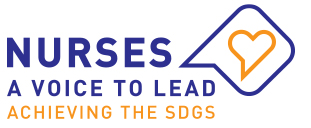Inclusive Health, Colorectal Nurse led clinic, Saudi Arabia
Nurse specialists empowered by education and training, are a necessity for the holistic evidence-based care of patients and families, in the evaluation and development of services and in coordination of care.
In the Kingdom of Saudi Arabia, colorectal cancer is on the increase. However, surgical techniques and therapies are advancing, and there are more and more survivors with chronic conditions. The resulting defecatory disorders and ostomies are considered a taboo, reduce quality of life and may interfere with worship. Hereditary conditions are thought to be more prevalent as consanguineous marriages are still common; this may cause difficulties finding a suitable partner when marriages are arranged. Additionally, literacy rates amongst older adults, especially females, are low, making education and awareness a challenge.
Denise Hibbert is a Clinical Specialist Director for the Colorectal Therapy Nursing Program at the King Faisal Specialist Hospital and Research Centre (KFSH&RC) in Riyadh, Saudi Arabia. The KFSH&RC, a Magnet-accredited tertiary referral centre, functions on a collaborative specialized care model and focuses on promoting health and wellness; assessing, diagnosing and managing conditions; education, support and counselling; coordination of care; and to advocacy via collaboration, consultation, education and dissemination.
Denise tells the story of a young man who had recently undergone a total proctocolectomy. Following the intervention, he was referred to the Nurse-Led defecatory disorder clinic and the Hereditary Colorectal Tumour Registry. At the time of referral, the young man was suffering from faecal urgency and incontinence. He had become socially isolated and withdrawn, and was concerned about sexual dysfunction and fertility. He had also stopped praying at the Mosque due to his unpredictable bowel habits and incontinence to gas.
Nurses at the Colorectal Therapy Nursing Program took a holistic history and specialist examination, noting that dietary and medication manipulation would improve his symptoms. He was provided with information on management of the anal fissures, and advised that his sexual difficulties might be psychological due to his discomfort and incontinence. Intimacy and open communication were discussed and his wife appeared very empathetic and supportive. The Hereditary Colorectal Registrar met with the patient and his wife and better explained the genetics, screening, management and follow-up related to associated conditions that would be necessary for the patient and his family.
At the follow-up visits, the patient demonstrated healing of the anal fissure, thickening of the stool and reduced frequency and urgency. He had resumed sexual relationships with his wife. Being empowered with knowledge of his new function, self-assessment, diet and medication manipulation, he was once again able to pray at the Mosque and was even eating out with close friends. He met with his employer and agreed on a plan to return to work part time initially. He had also disclosed his condition to his extended family, becoming an advocate for genetic testing and screening.
The KFSH&RC has seen an increase in the referral of patients with rectal cancer and defecatory disorders. Ambulatory clinics have increased, while inpatient visits have dropped due to a decreased length of stay. Patient satisfaction data has remained above 98%. Providing telephone clinics and Nurse-Led Walk-in Clinics improves satisfaction and early identification of problems, which reduce emergency room visits and readmissions. In 2016, APNs and CNS were involved in developing protocols and in the care of the first bowel transplant patient.
Denise contributes their success to the development and retention of a cohesive team of specialist expert nurses, saying that their passion, compassion, commitment to patient and family and to life-long learning is impressive.

